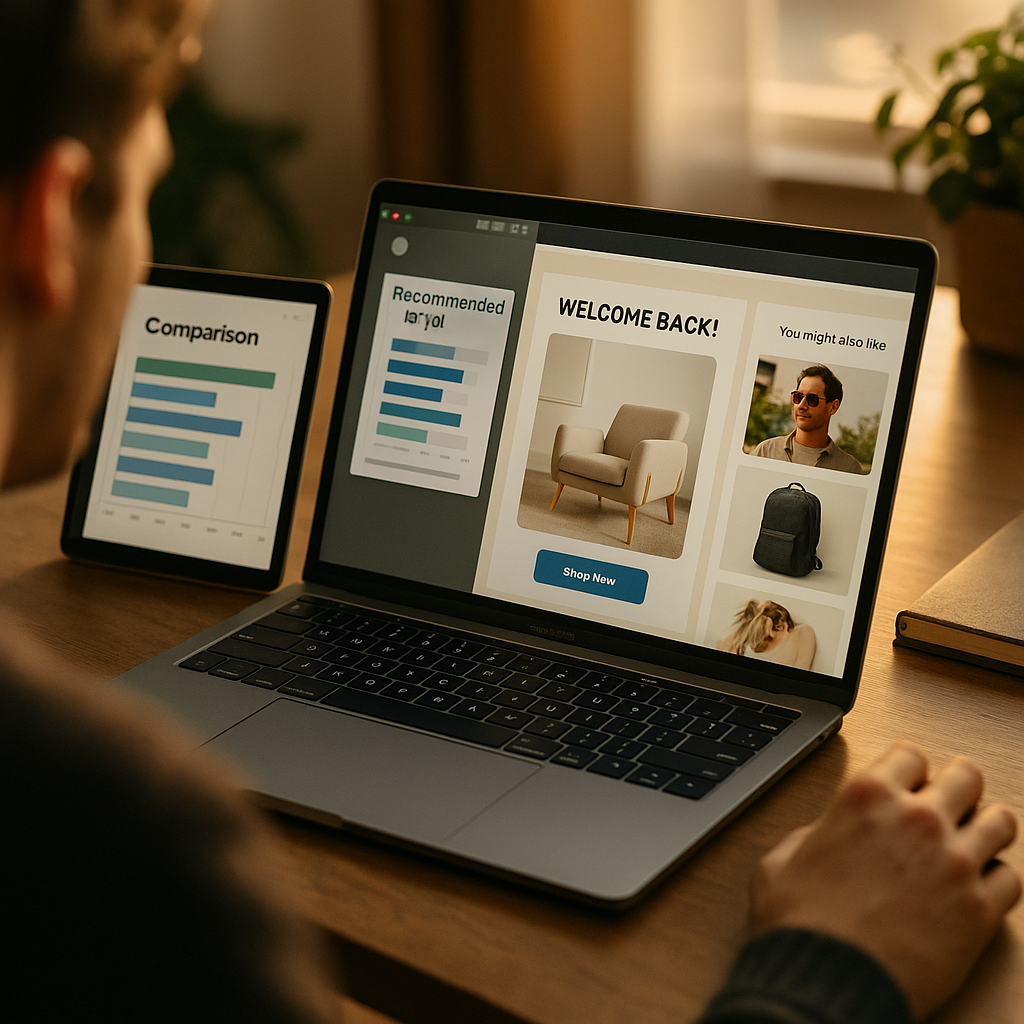Website personalization engines and software have rapidly transformed how brands interact with users, driving relevance, engagement, and conversions. As digital experiences become ultra-competitive, selecting the right personalization technology is crucial for success. This review compares leading solutions, weighs essential features, and delivers honest insights to help you make confident decisions for your business needs.
What is Website Personalization Software and Why Does It Matter?
Website personalization software enables businesses to deliver customized digital experiences to users based on their behaviors, preferences, demographics, and real-time context. With personalization, brands can:
- Show tailored product recommendations
- Serve relevant content or dynamic offers
- Guide visitors with behavioral or intent-based messaging
- Optimize calls-to-action for different audience segments
According to a 2025 Digital Commerce Benchmark, 77% of consumers expect some form of personalization online, and brands that deliver achieve a 35% higher conversion rate on average. Personalization not only boosts ROI but also strengthens loyalty and customer trust.
Key Features to Look for in Personalization Platforms
Not all personalization engines are built equally. When evaluating solutions, consider the following essential features:
- Real-Time Data Processing: Can the software act instantly on user data to personalize content?
- Omnichannel Orchestration: Does it support consistency across web, mobile, email, and more?
- Robust Segmentation: Does the tool allow for detailed audience targeting based on multiple criteria?
- AI and Machine Learning: Are recommendations or automations AI-powered for better outcomes?
- Integration Capabilities: Will it easily connect with your CMS, analytics, or e-commerce platforms?
- Privacy and Compliance: Does it ensure data privacy and stay up-to-date with regulations like GDPR?
Ease of use, scalability, reporting, and support also impact the overall value of a personalization platform.
Top Personalization Engines Reviewed and Compared
Based on user feedback, independent testing, and expert opinion, here’s how the leading website personalization software platforms perform in 2025:
- Optimizely: Offers robust experimentation, AI-driven targeting, and deep integration with enterprise CMS. Its visual editor makes on-site personalization intuitive for marketers.
- Dynamic Yield: Excels at AI-powered product recommendations and omnichannel campaigns. Its no-code tools help teams rapidly deploy A/B tests and automated personalization across web and mobile.
- Adobe Target: Integrates tightly with the Adobe Experience Cloud. Known for advanced segmentation and powerful multivariate testing, best suited for enterprise organizations with complex needs.
- Segment (by Twilio): Specializes in unifying first-party data, enabling real-time personalization and triggered communications across multiple touchpoints.
- Monetate: Utilizes machine learning to create individualized experiences, with powerful self-optimizing campaigns and detailed analytics. Particularly strong in retail and e-commerce sectors.
- Fresh Relevance: Known for personalized product widgets, triggered emails, and cart reminders, making it a favorite for mid-sized e-commerce brands.
These platforms differ in price, flexibility, and complexity. While enterprise-grade suites offer expansive features, mid-market solutions may provide faster deployment and greater ease of use.
Challenges in Implementing Website Personalization Engines
Adopting personalization software brings both opportunities and challenges. Businesses often face:
- Data Silos: Disconnected data sources hinder effective audience targeting. Prioritize platforms with robust integrations and CDP features.
- Resource Limitations: Sufficient time, technical skills, and content are critical. Choose software that empowers non-technical teams and offers strong onboarding support.
- Privacy Concerns: User trust is paramount. Select vendors who prioritize transparent data practices and enable granular consent management.
- Over-Personalization: Excessive or incorrect targeting can alienate users. Use real-time analytics and A/B testing to monitor and optimize experiences.
Success depends on aligning technology with clear strategy, stakeholder buy-in, and ongoing optimization for measurable business results.
How to Choose the Right Personalization Solution for Your Website
Selecting the best-fit personalization engine should be a data-driven process. Here’s how to approach it:
- Define your objectives: Are you optimizing revenue, engagement, customer retention, or lead generation?
- Audit your stack: Consider current data sources, marketing channels, and platform integrations.
- Evaluate usability: Ensure the tool is user-friendly for your team’s skill set and provides robust support.
- Test and trial: Most vendors offer demos or pilot programs—test with a small segment before full rollout.
- Plan for scale: Assess pricing, performance under high traffic, and vendor roadmap for future enhancements.
Involve IT, marketing, and compliance stakeholders throughout the selection process, and revisit your choice regularly as your business evolves.
Conclusion: The Future of Personalization Engines in 2025
Investing in website personalization software is no longer optional; it is a strategic imperative for sustained growth. By weighing features, usability, and data-handling capabilities, businesses can confidently select the right engine to drive engagement and revenue in 2025’s dynamic digital landscape.
FAQs About Website Personalization Engines and Software (2025)
-
What is the primary benefit of website personalization engines?
They enable businesses to deliver relevant, tailored experiences that increase conversions, boost customer satisfaction, and improve long-term loyalty.
-
How does AI impact personalization engines in 2025?
AI powers smarter segmentation, real-time recommendations, and predictive targeting, allowing brands to anticipate user needs and optimize experiences dynamically.
-
Is website personalization software only for large enterprises?
No. Solutions exist for businesses of all sizes—from agile tools for startups to scalable platforms for global organizations. Evaluate options based on needs and budget.
-
How do personalization engines handle privacy regulations?
Leading platforms offer built-in privacy controls, consent management, and ongoing compliance updates to align with laws like GDPR and CCPA.
-
How quickly can I see ROI from website personalization?
Many brands report improved engagement and conversion rates within weeks, though maximum ROI depends on implementation quality and continuous optimization.
